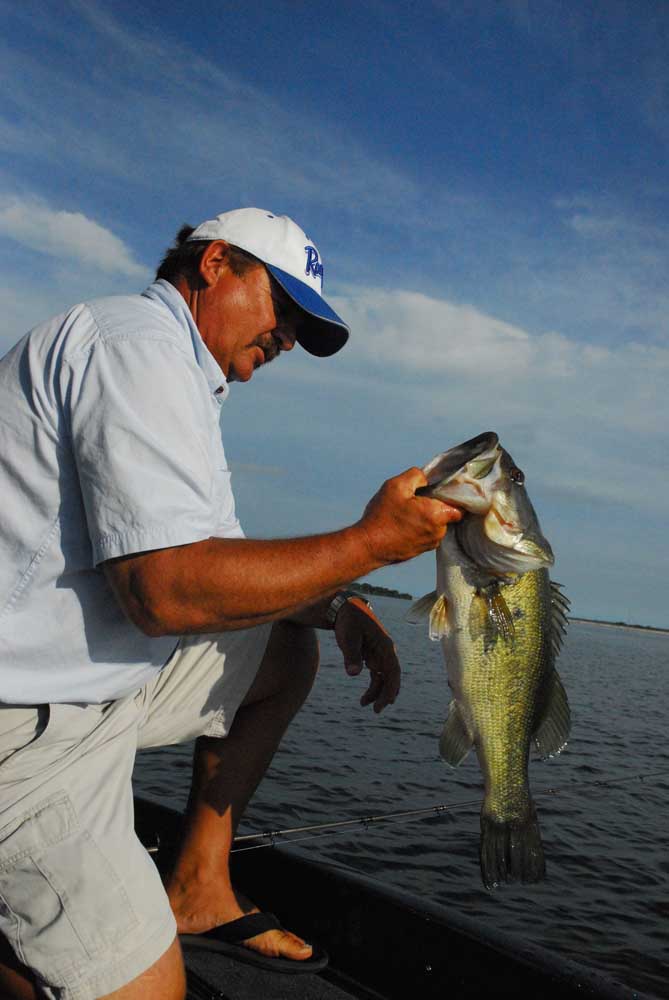Clean lakes, rivers and streams should be a priority
Published 4:43 pm Thursday, May 24, 2018

- Helping clean Texas’ lakes of pollution and invasive plants and fish species not only ensures cleaner drinking water, but can also improve fishing.
I recently watched a documentary about Japan’s Nagara River. The 100-mile-long river is probably best known to westerners as the river where fishermen use cormorants to catch fish below lanterns at night.
It is also one of three clear flowing rivers in Japan. Its water is pure enough that the 800,000 residents along the river use it for their daily drinking and cooking water without the use of treatment plants.
Trending
Using a centuries-old process, one resident showed how water that flowed to her house came through a three-tiered system, the first for drinking water, the second for cleaning things like vegetables and the third for washing cooking utensils. Whatever food was cleaned off utensils was washed back into the waterways where it was consumed by fish — leaving the water clean once again.
Also interviewed were residents of a village at the upper end of the river who daily cleaned out an aqueduct running through their town. They believed it was their duty to help keep the water clean for those living downstream.
That, of course, got me to thinking about us and how little regard we have for the lakes, rivers and streams that we use for recreation, industry and maybe, most importantly, drink from daily. We generally do not see it as our responsibility to keep the water clean. Instead, we rely on multimillion-dollar water treatment plants and chemicals to do what those living on the Nagara River do with a broom, fish and aquatic plants.
Everyone in Tyler drinks water from Lake Tyler and Lake Palestine, but how many would drink water at either lake.
Although there is still room to go, it feels like we have improved over the years. I remember the days when the shoreline was covered with Styrofoam from cheap coolers that blew out of boats, old beer cans and broken bottles. Some of the trash did not come from off the water. It came from the land as people dumped tires, batteries and all types of garbage into waterways.
And that was the shallow water. Who knows what was in the deeper waters?
Trending
Sadly, it has not stopped. I talked to a number of people about the strangest things they have ever found on a lake a couple of years ago. A couch was the easy winner.
I have also heard from Texas Parks and Wildlife Department biologists about property owners using chemicals not licensed for aquatic use being sprayed on vegetation on the edge of their property and sometimes in the water.
None of this includes the exotic and often noxious vegetation that is dumped in our waterways like giant salvinia. It came to the U.S. for garden ponds. It has become a natural disaster costing millions to maintain. Forget eradication at this point.
There are also the exotic species that have shown up. Some, like zebra mussels, made their way from Europe on cargo ships and then either floated downstream or were unknowingly transported by boaters who did not clean their boats before launching on another lake.
There are also fish species intentionally dumped into a lake. Some are liberated from aquariums and take hold on a lake. Some, like white bass on Lake Fork, are moved from one lake to another by someone thinking they know best.
The latest example appears to be yellow bass that have been discovered on Lake Palestine. They were possibly brought in by someone using them as bait, but again who knows? The more important question is, Did they play a role in the recent white bass dieoff on the lake?
There are very few cleanup days at lakes and rivers, so it is hard to qualify how much trash ends up in them. One example of how bad it can get comes from the annual Billy Sandifer Big Shell Cleanup at Padre Island National Seashore. Last year alone, volunteers collected 50 tons of trash from 18 miles of beachfront. In a 22-year period, the project has brought in more than 2.5 million pounds of trash.
Memorial Day weekend is one of the two busiest weekends for boating traffic in Texas. It also draws visitors to lakeside parks and brings out shoreline residents. This would be a good year to be like the residents of the Nagara River and start thinking of your neighbors and the future by not making a mess. Store trash in boat holds until you get off the water. Clean, drain and dry boats before moving from lake to lake to keep from transporting unwanted vegetation and mussels. Make sure what you do around the house does not end up in the lake.
The water you pollute could be the water you drink.






